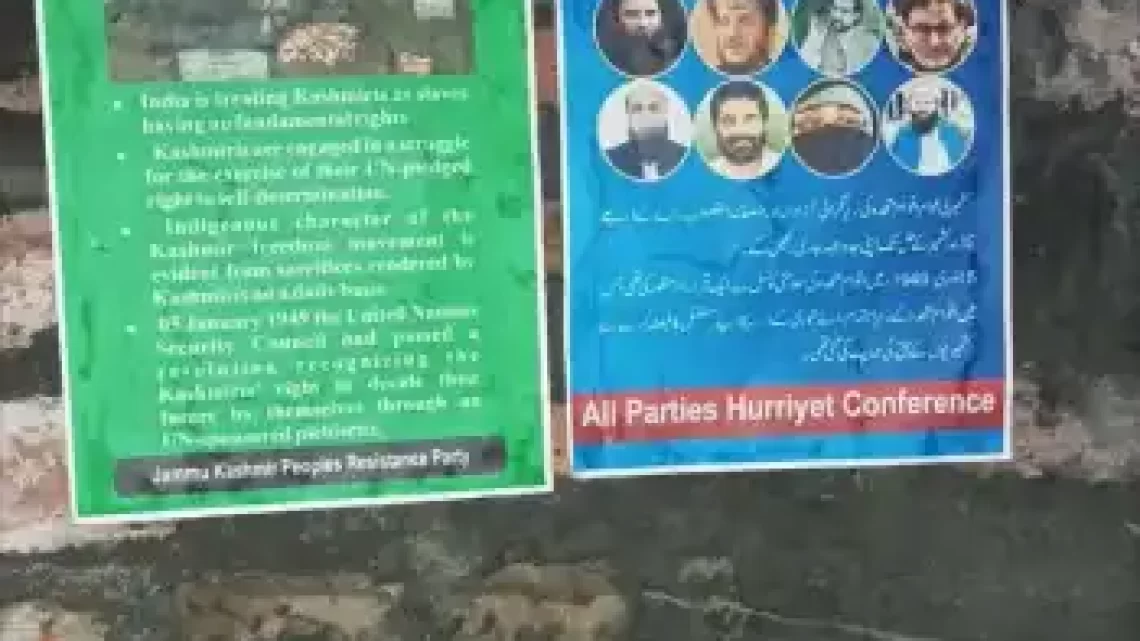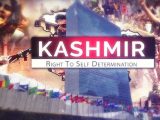
Posters All Around Kashmir Urge UN Action Amid Escalating Tensions
January 4, 2024In recent developments, an increased number of posters have emerged in Srinagar and other regions of the Indian illegally occupied Jammu and Kashmir, demanding United Nations intervention to address the longstanding Kashmir dispute in accordance with its resolution passed on January 5, 1949.
According to reports, pro-freedom organizations have prominently displayed posters asserting that India persistently denies the Kashmiris their right to self-determination, a right recognized by the UN Security Council through its resolutions. The posters feature images of unlawfully detained Hurriyat leaders, including Masarrat Aalam Butt, Shabbir Ahmed Shah, Muhammad Yasin Malik, Mirwaiz Umar Farooq, Aasiya Andrabi, Nayeem Ahmed Khan, Mushtaq-ul-Islam, and Dr. Hameed Fayaz. The posters implore the World Body to take cognizance of what they term Indian state terrorism in the occupied Kashmir region.
The UN Commission for India and Pakistan (UNCIP) had previously passed a resolution on January 5, 1949, stipulating that the question of Jammu and Kashmir’s accession to either India or Pakistan would be determined by the Kashmiri people through the exercise of their right to self-determination in a free and impartial plebiscite, overseen by the United Nations.
The posters shed light on alleged actions by the Indian government led by Narendra Modi, suggesting that it is not only infringing upon the basic rights of Kashmiris but also confiscating their properties, lands, houses, shops, and offices using stringent laws. The organizations behind the posters claim that these actions violate international laws and are geared towards imposing the Hindutva agenda of the Rashtriya Swayamsevak Sangh (RSS) in the UN-acknowledged disputed territory. The posters argue that the denial of the right to self-determination is not only a breach of human dignity but also contradicts the principles enshrined in the Universal Declaration of Human Rights and various human rights covenants.
Expressing concern, the posters deplore the treatment of Kashmiris as slaves deprived of fundamental rights by the Indian government. They underscore the collective responsibility of the United Nations and the global community to address the plight of the Kashmiri people. Urging the UN to fulfill its obligations, the posters remind the international community of the need to implement relevant resolutions to bring about a resolution to the Kashmir dispute and alleviate the suffering of the oppressed population facing the alleged brutalities of Indian forces.
As tensions escalate in the region, these posters serve as a poignant reminder of the ongoing struggle for the right to self-determination and the urgent need for international intervention to address the complex and longstanding Kashmir dispute.

